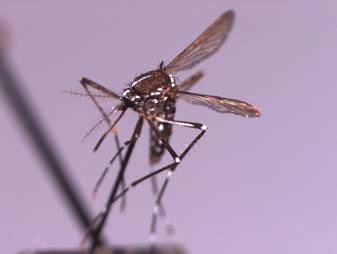It has been a rainy spring in New Jersey. That will help your plantings, keep down fire hazards and replenish our reservoirs and the aquifer. It will also increase breeding places for mosquitoes.
New Jersey has more than 60 different kinds of mosquitoes, 20 of which can carry diseases.
Last year, New Jersey’s mosquito season started early, with weather that was hot and wet throughout and extended well into the fall.
During the 2018 season, surveillance programs documented above average mosquito populations and record-setting levels of West Nile virus in mosquitoes with more than 1,330 positive samples. The season generally lasts well into the first frosts of fall.
The New Jersey Mosquito Control Commission has marked its 500th meeting and the Department of Environmental Protection, Department of Health and Department of Agriculture remind the public of the ongoing importance of controlling populations of the disease-carrying insect.
In addition to monitoring and controlling populations of mosquitoes that carry West Nile virus, the state-led effort remains vigilant in addressing equine encephalitis, a rare but very serious disease, and emerging threats such as Zika.
With continued wet weather this spring, it is critical that residents do their part to address mosquito threats around their own properties as the mosquito season begins. Last year, New Jersey reported its highest number of West Nile virus cases, with more than 60 cases identified in 20 counties.
The New Jersey Mosquito Control Commission strives to ensure the use of only the most environmentally safe and efficient mosquito techniques, products and programs and oversees an environmentally-sound aerial application program. The commission reviews municipal and county mosquito control programs and projects to ensure their compliance with state and federal regulations and policies.
It also supports the training of county mosquito control personnel as well as the education of the public on mosquito biology, surveillance, and the various chemical, biological and water-management techniques and practices used in the state's abatement efforts.
Early season mosquito activity has begun. Testing will start soon for a variety of pathogens spread by mosquito bites, including Eastern equine encephalitis and West Nile virus, which are routinely found circulating within mosquito populations in New Jersey.
Even with dry weather, diseases can be spread as mosquitoes and birds share the same water sources, making it even more important for the public to remove sources of standing water in their yards that can serve as mosquito breeding grounds.
The commission recommends residents take the following steps to protect themselves and their families:
- Empty water from flower pots, pet food and water dishes, birdbaths, swimming pool covers, buckets, barrels and cans at least once or twice a week.
- Clear clogged rain gutters.
- Check for and remove any containers or trash that may be difficult to see, such as under bushes, homes or around building exteriors.
- Use EPA-registered insect repellents when outdoors and wear protective clothing.
- Stay in air-conditioned places or rooms with window screens that prevent access by mosquitoes.
- Dispose of tin cans, plastic containers, ceramic pots or similar water-holding containers that have accumulated on your property.
- Drill holes in the bottom and elevate recycling containers that are left outdoors.
- Repair and clean storm-damaged roof gutters, particularly if the leaves from surrounding trees tend to clog drains. Roof gutters can produce millions of mosquitoes each season.
- Turn over plastic wading pools and wheelbarrows when not in use.
- Avoid allowing water to stagnate in bird baths.
- Aerate ornamental pools or stock them with fish. Water gardens become major mosquito producers if they stagnate.
- Clean and chlorinate swimming pools, including those not in use. An untended swimming pool can produce enough mosquitoes to result in neighborhood-wide complaints. Be aware that mosquitoes may even breed in the water that collects on pool covers.
- This state-county network is engaged in critical information sharing so that county partners can investigate any emerging mosquito-borne virus activity and take needed action where appropriate. Likewise, county programs share both mosquito population data and mosquito species samples taken each day throughout the season. These data are compiled into regional reports and analyzed by the Rutgers Agricultural Experiment Station for decisions made by the commission, the DEP and the counties.
To learn more about the New Jersey Mosquito Control Commission and for links to county mosquito agencies, visit www.nj.gov/dep/mosquito
For more information on how to prevent mosquito bites and illness, or to mosquito-proof your home and yard, visit nj.gov/health/cd/documents/faq/mosquito_checklist.pdf or nj.gov/health/cd/documents/topics/vectorborne/
SOURCE: https://www.nj.gov/dep/newsrel/2019/19_0033.htm

No comments:
Post a Comment